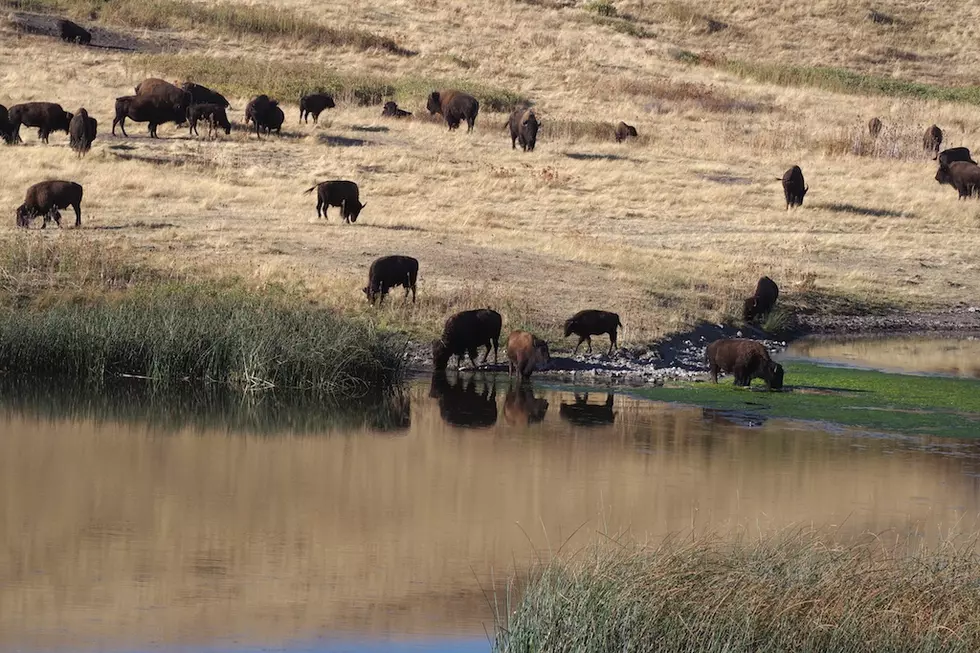
Viewpoint: Tragedy of the ‘buffalo commons’
Tom Woodbury
The “tragedy of the commons” refers to the situation where several private parties are given equal access to a limited resource, the classic example being a public pasture surrounded by private ranches.
Left to their own devices, each rancher will tend to maximize their share of forage, resulting in a competition that quickly desiccates the pasture to the detriment of all. This idea gave rise to environmental regulation at a time when industries were freely discharging toxic waste into rivers, lakes, and the air.
The State of Montana understands this concept very well. Under the auspices of a broken, obsolete, and unscientific Interagency Bison Management Plan, Montana’s Department of Livestock designated a severely limited “commons” for wild bison just outside the boundaries of Yellowstone National Park. On these cramped buffalo commons, the state then ‘allows’ Tribes access to a very limited “resource” - the American Buffalo.
Keen to limit wild bison’s access to open forage on public lands, Montana knows that if Tribes have to compete with one another for unpredictable, cramped access to their aboriginal food source - after 150 years of forced separation - then each Tribe will attempt to harvest as many buffalo as they feel are needed to address the grinding poverty, malnutrition, and cultural revival on their respective reservations.
This is the tragedy of the buffalo commons, brought to you by the State of Montana on behalf of its cattle barons.
From the buffalo’s perspective, it is only a slight improvement over being shipped to slaughterhouses, as was the practice before the Tribes showed up. But from Montana’s perspective, it serves the dual purpose of keeping bison populations artificially low and deflecting blame for institutionalized slaughter, in the public’s eyes, from the state to the Tribes.
Unfortunately, many conservationists are playing along with the state’s cynical ploy. By failing to see through the public spectacle of an unsustainable harvest conducted by eight different Tribes, to the livestock industry’s persistent culpability over time, these culturally insensitive assignations of blame to the Tribes serve the purpose of upholding this colonialist regime.
Montana really needs the public to think poorly of the Tribes, forcing them to harvest buffalo in full public view, because the state also understands that Tribes have superior, “sovereign” jurisdiction over wild bison on federal lands. It is solely by the consent of the other agencies, and the Tribes themselves, that Montana is able to wield such cruel dominion over our National Mammal.
Blaming Tribes for the results of this colonialist regime is superficial, culturally ignorant, and has the practical effect of absolving the state itself. If there were 70,000 wild bison in the Yellowstone Ecosystem, which is its natural holding capacity, and if the Tribes harvested bison in the wilds the same way state hunters take elk, nobody would have the temerity to characterize an annual Tribal harvest of 1500 bison a “slaughter,” as many conservationists have done.
The obvious solution to this ongoing tragedy is for the Tribes to cooperate with one another, rather than continuing to compete against one another in the state’s cynical, zero-sum game.
By exerting their inherent sovereignty over wild bison under a co-stewardship agreement worked out with the Park Service, the Forest Service and, if Yellowstone Bison are listed as threatened or endangered, the Fish & Wildlife Service, Tribes can relegate Montana to the sidelines until such time as they agree to recognize the American Buffalo as wildlife.
Montana, like any state, is legally precluded from interfering with this exercise of Tribal sovereignty by Article 6 of the U.S. Constitution, as the U.S. Supreme Court ruled Wyoming was in a 2019 decision.
Globally, Indigenous people are the stewards of 85% of the worlds biological diversity. It’s time they resumed their stewardship of the American Buffalo. In the long run, everyone will benefit from the resumption of this sacred relationship.
Tom Woodbury is a retired public interest attorney, an eco-psychologist, and the communications director for Buffalo Field Campaign
